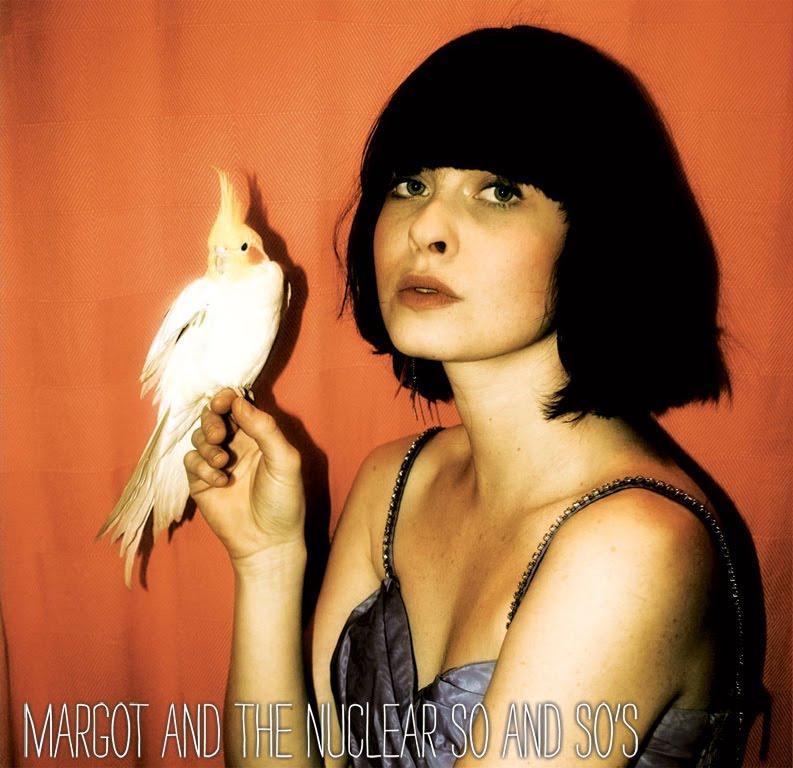
News
When Professors Speak Out, Some Students Stay Quiet. Can Harvard Keep Everyone Talking?

News
Allston Residents, Elected Officials Ask for More Benefits from Harvard’s 10-Year Plan

News
Nobel Laureate Claudia Goldin Warns of Federal Data Misuse at IOP Forum

News
Woman Rescued from Freezing Charles River, Transported to Hospital with Serious Injuries

News
Harvard Researchers Develop New Technology to Map Neural Connections
Margot & the Nuclear So and So’s Hit Growing Pains
Margot & the Nuclear So and So's -- "Buzzard" -- Mariel Recordings -- 2.5 STARS

Margot & the Nuclear So and So’s have always had the sex and the drugs, but they don’t always pull off the rock n’ roll. With their third studio album, the former tweesters amp up the electric guitars and develop a bit of swagger. That attitude, however, fizzles halfway into an incoherent album. Margot & the Nuclear So and So’s would seem to be a band unwilling to compromise—with their complex instrumentation and perefctionist streak—but “Buzzard” sounds like an unsatisfying middle ground between the Margot of old and their new approach.
The change in Margot’s sound is reflected in a line-up that now includes keyboards as well as additional guitars and percussion. Eric Kang’s violin, which graced the melodies of the two earlier albums, is nowhere to be heard on “Buzzard,” though he still plays guitar and lap steel.
The album’s opening track, “Birds,” is a strong introduction to the new direction in which Margot is headed. It begins innocuously enough, with a melody by the electric guitar accompanied by crisp percussion. However, when Richard Edwards’ voice reaches higher and higher into falsetto, it’s a clue that Margot is up to something. Indeed the electric guitar suddenly rips as Edwards repeats over and over, “Let’s have a party.” That refrain turns into “Let’s have baby,” and then, “Let’s make it evil.” The hints of the sinister and supernatural that pervade Margot’s earlier lyrics are found here as well.
“Let’s Paint Our Teeth Green” continues with more perverse suggestions. Edwards’ usually-languid, breathy voice yells over the blaring guitar. “Let’s move to Utah / Let’s make some sick love,” he yelps in successions, “Shoot our rifle / Let’s thump a Bible.” These things all sound tough, even if they don’t make much sense. It seems that the So and So’s want the rock star status but don’t really know how to go about it. After all, this is a band that once sang about paper kittens and bookworms.
This kind of inconsistency is also found in “Your Lower Back,” a dark song about sex and violence. The track begins with a sample from what sounds like an old-fashioned PSA warning about the dangers of sex. “[Sex] can even take us to the brink of madness,” cautions an overdramatic voice. This all seems funny and points to a cavalier and ironic attitude towards sex until one listens through to the song’s end. A girl—a very young-sounding girl—is asked what she did for her 18th birthday; “I went to a strip club. And got a job,” she replies.
But the album’s tone is hardly coherent, and there are songs on “Buzzard” that are unequivocal. “Claws Off” is unapologetically brash: “If you want to go, get lost / If you want to stay, shut up.” Some songs from the latter half of the album are also more sincere, revealing the muted agony of the old Margot. As its twee-sounding title suggests, the sixth track “Tiny Vampire Robot” signals a return to habits of old. This is a song with sorrows and tambourines. The emotional sincerity of these latter tracks—all stories of sadness out of which “Lunatic, Lunatic, Lunatic” is the standout—is at odds with the aggressiveness of the first half of the album.
“Buzzard” concludes with a stripped-down solo, “I Do.” The sound is so sparse that not even a strummed chord accompanies Edwards’ whispering and echoing voice as he fingers individual strings on acoustic guitar. The scuffling at the beginning and end of the track create an air of real intimacy that is lacking in the clamorous sounds earlier in the album. All pretenses are stripped. “I never know if you’re serious / Or if you’re putting me on,” he sings, “I guess it really doesn’t matter.” It’s hard to tell if Margot & the Nuclear So and So’s punk rock attitude is serious, but it hardly seems to matter either, since they don’t succeed when they try.
Bands can and should mature, of course, but Margot has hit growing pains rather than transcendence. “Buzzard” evinces confusion, caught between old habits and new desires.
Want to keep up with breaking news? Subscribe to our email newsletter.
